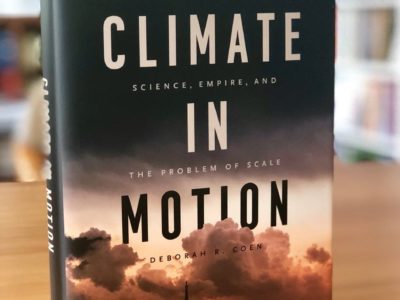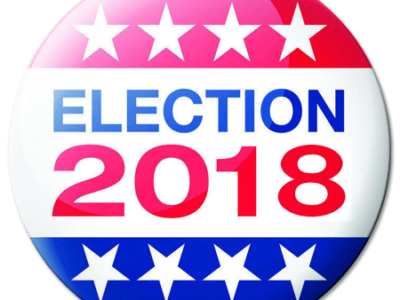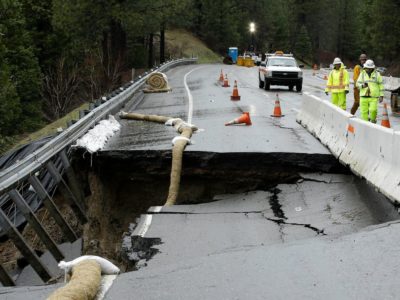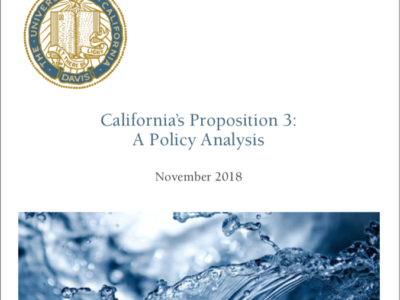SAFE From Kavanaugh?
Would the newest Justice uphold the Trump administration’s fuel economy standards rollback?
A little over a week ago, my colleagues and I submitted comments to EPA and NHTSA urging the withdrawal of the Trump administration’s so-called “SAFE” rule, which would roll back the federal fuel economy standards for model year 2021-2026 passenger cars and light trucks and revoke California’s waiver for its Advanced Clean Cars program. The Advanced Clean Cars program, among other things, includes California’s zero-emission vehicle (ZEV) mandate. The ZEV ma...
CONTINUE READINGMajor Policy Attacks on California’s Low Carbon Fuel Standard and Why They’re Off-Target
Second in a Series About California’s Low Carbon Fuel Standard Program
[Post co-authored by Ted Parson and Sean Hecht] In this post, we continue our discussion of California’s Low-Carbon Fuel Standard (LCFS), which we introduced in our post on October 4, 2018. Because it’s a prominent and ambitious policy that will reduce California’s reliance on petroleum-based transport fuels, it is unsurprising the Low-Carbon Fuel Standard has attracted forceful attacks. Opponents of the LCFS have advanced various critiques of the policy, ...
CONTINUE READINGWhat’s New Under the Sun?
New Book Demonstrates the Hidden History of Climate Science
It's a great regret of mine that I did not study the history of science either as an undergraduate or in graduate school. Then, it seemed to me like an arcane, recondite field -- almost bizarre. Boy, was I wrong. Now in my rapidly advancing dotage, I recognize how it touches on so many of the essential aspects not only of human civilization as well as the fundamental nature of truth, and combines qualitative and quantitative investigation in often profound ways. What ...
CONTINUE READINGElection Scenarios
Here are three ways things could play out from now to 2020.
We should know within the next 48 hours who will control the House and Senate, though if races are very tight it might take longer. I don't want to make election predictions -- that's Nate Silver's job, not mine. But I do want to sketch out some scenarios for the next two years, depending on the election results. I'm assessing them by whether they favor environmental regulation -- so if you're anti-regulatory, you'll need to modify the labels. The Least Favorable Scen...
CONTINUE READINGTear Up the Dodger Stadium Parking Lot
It’s not just the Dodgers’ bullpen that needs revision
The Los Angeles Dodgers’ second consecutive World Series flameout has management considering a number of important off-season questions. What is Clayton Kershaw’s future at the club? Will Manny Machado, who reportedly left the stadium after Game 4 wearing a “Villains” backwards cap, get the boot? Here at the Emmett Institute, we have been pondering another question: is there any better use for the massive Dodger Stadium parking lot than storing 16,000 empt...
CONTINUE READINGCalifornia’s Proposition 6: Bad Policy & Nefarious Politics
Proposed Repeal of California's Landmark "Gas Tax" Legislation Would Be Disastrous for State
Politicians don't like to focus on infrastructure maintenance. It's not sexy, doesn't command media headlines, and captures little public attention. But maintaining a functioning, safe public infrastructure system is vital to ensuring a strong economy, protecting public safety and promoting long-term environmental goals. That's why Proposition 6, a measure on California's November 6th general election ballot, is so important. And why it's nevertheless failed to ...
CONTINUE READINGTen Reasons Why (the Midterms Matter)
Whatever happens on Nov. 6 will have a big environmental impact.
We're less than a month from election day, which will help shape the future of environmental protection. Because the parties are so polarized now, partisan control in Congress or the states translates into movement toward further regulation or deregulation, depending on which party is in the ascendancy. Here are ten reasons why you should care about the elections, whatever your position on environmental matters may be. Whether you favor environmental regulation or...
CONTINUE READINGThe Affordable Clean Energy Rule Would Be Neither Affordable Nor Clean
Today marks the end of the public comment period on the proposed Affordable Clean Energy (“ACE”) rule, the EPA's proposed replacement of the Clean Power Plan (“CPP”). The CPP is the Obama-era effort to limit emissions of greenhouse gases from fossil-fuel-fired power plants. For reasons laid out previously on this blog (see here and here, for example) and in our new comment letter, the EPA should not promulgate the ACE rule. Four UCLA Law faculty, including Cara...
CONTINUE READINGU.C. Davis Law’s Environmental Law Center Releases Proposition 3 White Paper
Report Analyzes California's Newest, Multi-Billion Dollar Water Bond Initiative
The U.C. Davis School of Law's California Environmental Law & Policy Center has published a detailed analysis of one of the most controversial initiative measures facing California voters on the November 6, 2018 general election ballot: Proposition 3. California's Proposition 3: A Policy Analysis provides a detailed summary and analysis of the proposed "Water Supply and Water Quality Act of 2018." If enacted, Proposition 3 would authoriz...
CONTINUE READINGObama-Era Vehicle GHG Emission Standards Critical for Californians and Consumers
Berkeley Environmental Law Clinic’s Comments on the SAFE Vehicles Rule
On Friday, the comment period closed on EPA’s proposed “Safer Affordable Fuel-Efficient Vehicles (SAFE) Rule.” The rule would roll back Obama-era vehicle GHG emissions standards and rescind California’s preemption waiver, which allows the state to maintain its own standards. 83 Fed. Reg. 42986 (Aug. 24, 2018). The UC Berkeley Environmental Law Clinic (ELC) submitted two comments on this proposal. Although the rule is rife with the logical inconsistencies, sla...
CONTINUE READING








